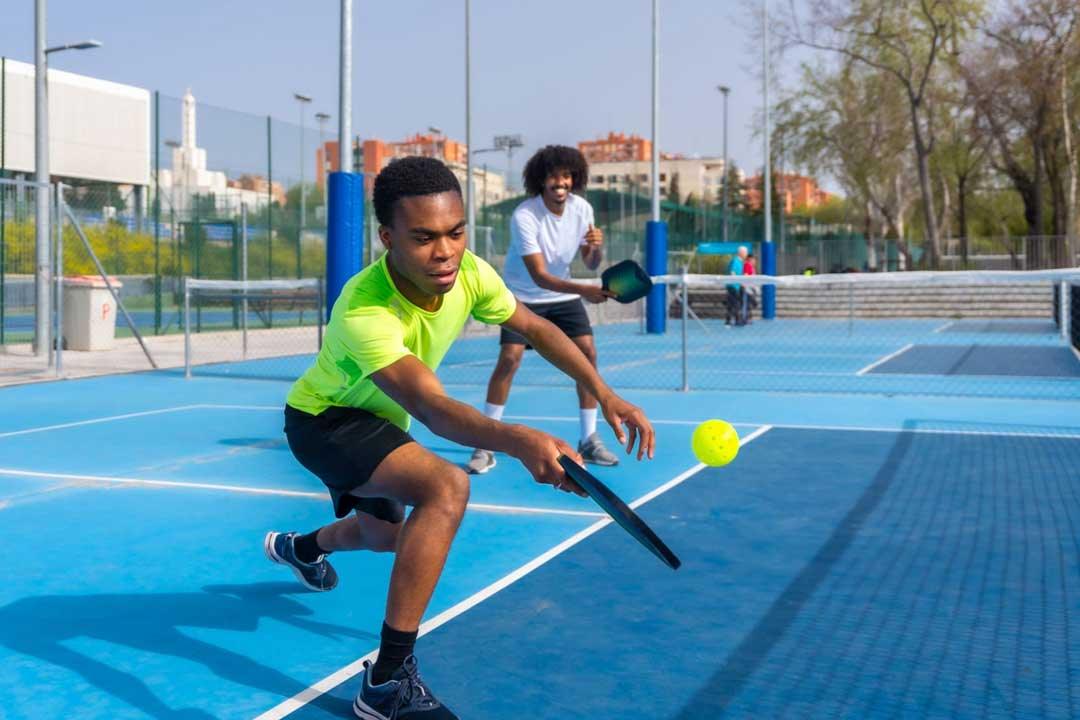
Pickleball Court Etiquette: Do’s and Dont's
Share
Introduction
Pickleball is more than just a game; it’s a community activity that brings together players of all ages and skill levels. To ensure that everyone has a positive and enjoyable experience, understanding and practicing proper court etiquette is essential. This guide will walk you through the do’s and don’ts of pickleball court etiquette, helping you to contribute to a respectful and sportsmanlike environment on and off the court.
Understanding the Importance of Court Etiquette
The Role of Sportsmanship in Pickleball
Sportsmanship is at the heart of pickleball. It’s not just about winning or losing but about playing the game with respect for your opponents, partners, and the sport itself. Good sportsmanship fosters camaraderie and creates a welcoming atmosphere, which is why etiquette is such a vital component of pickleball.
Impact of Etiquette on Game Enjoyment
Proper etiquette enhances the overall enjoyment of the game for everyone involved. When players adhere to the expected standards of behavior, it minimizes conflicts, keeps the game running smoothly, and allows all participants to focus on the fun and challenge of the sport. Whether you’re a seasoned player or new to the game, following these guidelines ensures a positive experience for all.
Pre-Match Etiquette
Arriving on Time
Punctuality is a simple yet significant aspect of pre-match etiquette. Arriving on time shows respect for your fellow players and ensures that the game can start as scheduled without unnecessary delays. It sets a tone of responsibility and consideration that carries through the rest of the match.
Introducing Yourself to New Players
When playing with or against new faces, it’s courteous to introduce yourself before the match begins. A quick introduction helps break the ice and establishes a friendly rapport, which can lead to better communication and cooperation during the game.
Warming Up Considerately
Warm-ups are crucial for getting into the groove before the match, but they should be done with consideration for others. Avoid aggressive shots during warm-up and focus on gentle rallies that help all players get comfortable. This practice shows respect for your opponents’ preparation and sets a cooperative tone for the game.
During the Game
Calling the Score Loudly and Clearly
Calling the score before each serve is a fundamental part of pickleball etiquette. It ensures that everyone knows the current status of the game and prevents disputes over the score. Make sure to call the score loudly and clearly, especially in noisy environments.
Respecting Line Calls
Line calls are often a point of contention in pickleball, but respecting your opponent’s calls is a key part of maintaining a friendly atmosphere. If you’re unsure whether a shot was in or out, it’s better to give the benefit of the doubt to your opponent. In the spirit of sportsmanship, always aim to make fair and honest line calls.
Avoiding Distractions and Interruptions
During play, it’s important to avoid behaviors that could distract or interrupt others. This includes not crossing onto another court during a point, avoiding unnecessary chatter, and keeping your focus on the game. Distractions can disrupt the flow of play and are considered poor etiquette.
Communication on the Court
Using Clear and Polite Communication
Good communication is key to a successful and enjoyable game, especially in doubles play. Use clear and polite language when coordinating with your partner or discussing any issues with your opponents. Positive communication fosters teamwork and ensures that everyone is on the same page.
Encouraging Your Partner
In doubles, supporting and encouraging your partner is essential. Whether they make a great shot or miss an easy one, offer positive reinforcement. This not only boosts their confidence but also strengthens your partnership on the court.
Handling Disputes Gracefully
Disputes are inevitable in any competitive sport, but how you handle them makes all the difference. If a disagreement arises, approach it calmly and with an open mind. Remember that the goal is to resolve the issue amicably, keeping the game’s spirit intact.
Handling Equipment
Proper Care of Paddles and Balls
Respecting the equipment used in the game is another aspect of proper etiquette. Avoid slamming your paddle in frustration or carelessly tossing balls around the court. Treating the equipment with care ensures it lasts longer and remains in good condition for future games.
Keeping the Court Clean and Organized
Maintaining a clean and organized court is a shared responsibility. Pick up any trash, return stray balls, and ensure that the court is left in the same condition as you found it. This simple act of respect makes the court a pleasant place for everyone to play.
Post-Match Etiquette
Congratulating Your Opponent
Win or lose, it’s important to congratulate your opponents after the match. A simple handshake or verbal acknowledgment of a game well played goes a long way in demonstrating good sportsmanship. It’s a small gesture that shows respect for your fellow players.
Participating in Post-Game Handshakes
The post-game handshake is a longstanding tradition in sports and should not be overlooked in pickleball. This ritual symbolizes respect and the spirit of fair play, reinforcing the positive atmosphere of the match. Even if the game was intense, always take the time to shake hands.
Reflecting on the Game Positively
After the match, reflect on the game positively, whether you won or lost. Focus on what you learned and what you enjoyed, rather than dwelling on mistakes or missed opportunities. This mindset not only helps you grow as a player but also keeps the game’s experience enjoyable.
Spectator Etiquette
Respecting the Players’ Focus
As a spectator, it’s important to respect the players’ concentration during the game. Avoid making loud noises, sudden movements, or any other distractions that could disrupt the players’ focus. Your role as a spectator is to support the game quietly and respectfully.
Avoiding Sideline Coaching
Sideline coaching is generally frowned upon in pickleball, as it can create unfair advantages and disrupt the flow of the game. If you’re watching a match, resist the urge to give unsolicited advice to the players. Let them play their game and focus on enjoying the match.
Cheering Appropriately
Cheering for great plays is encouraged, but it should be done in a way that doesn’t interrupt the game or disrespect the players. Applaud good shots from both sides and avoid negative comments. Appropriate cheering adds to the excitement of the game without crossing the line into unsportsmanlike behavior.
Common Mistakes to Avoid
Over-Celebrating or Taunting
While celebrating a great shot or a win is natural, it’s important to do so modestly. Over-celebrating can come across as taunting and is considered poor sportsmanship. Keep your celebrations respectful, acknowledging the efforts of all players involved.
Ignoring the Rules of Play
Ignoring or bending the rules of pickleball not only disrupts the game but also shows a lack of respect for your opponents and the sport. Familiarize yourself with the official rules and stick to them, ensuring a fair and enjoyable match for everyone.
Being Overly Competitive
Pickleball is a competitive sport, but being overly aggressive or competitive can detract from the fun and camaraderie of the game. Remember that the primary goal is to enjoy the game and improve your skills, not to win at all costs. Keep the competition friendly and the atmosphere positive.
Etiquette for Different Skill Levels
Being Patient with Beginners
If you’re playing with beginners, patience and encouragement are key. Remember that everyone was a beginner once, and offering support rather than criticism helps new players learn and enjoy the game. Being a supportive partner or opponent fosters a welcoming environment.
Challenging Advanced Players Respectfully
When playing against more advanced players, it’s important to challenge them respectfully. Push yourself to improve, but also recognize and respect their skill level. Acknowledge their great shots and learn from their play, using the experience as an opportunity to grow.
Adapting Play for Mixed Skill Groups
In mixed skill groups, it’s important to adapt your play to ensure that everyone has an enjoyable experience. This might mean adjusting your shots to keep rallies going or offering tips to less experienced players. Balancing the competition ensures that all participants feel included and challenged.
Conclusion
Pickleball court etiquette is more than just a set of rules; it’s a reflection of the sport’s values of respect, sportsmanship, and community. By following these do’s and don’ts, you contribute to a positive playing environment that enhances the enjoyment of the game for everyone involved. Whether you’re a novice or a seasoned player, practicing good etiquette ensures that pickleball remains a fun, inclusive, and rewarding experience for all.






